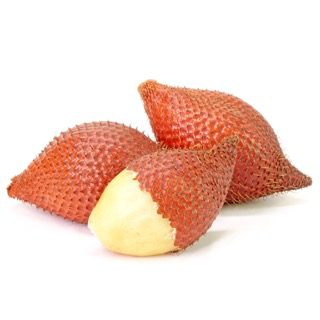

Snake fruit, also known as Salak fruit, originates from Indonesia and has a unique appearance with a scaly brown skin and white flesh on the inside. While it is not confirmed whether snake fruit is safe for dogs to consume, it is known that ripe fruit is not known to be toxic. However, unripe fruit can be harmful due to the presence of tannic acid, which can cause liver and kidney problems if ingested in large amounts.
Salak fruit, or snake fruit, is high in fiber, promoting healthy digestion. It is also rich in protein and carbohydrates, providing energy and stamina.
The large seed of the snake fruit is inedible and poses a choking hazard. Additionally, unripe snake fruit is sour and astringent due to the trace amount of tannic acid, which can lead to liver and kidney issues with excessive consumption. While other mammals in the wild consume snake fruit, there have been no direct studies on its suitability for dogs.
It is important to never give dogs unripe snake fruit or the fruit’s skin and seeds.
Snake Fruit for Dogs: Is it Safe?
While there is no confirmed conclusion on the edibility of snake fruit for dogs, many wildlife eat it and the ripe fruit is not known to be toxic to canines. However, unripe snake fruit contains trace amounts of tannic acid, which can cause liver and kidney problems if consumed in large amounts.
Snake fruit is packed with beneficial nutrients for dogs. It is high in fiber, promoting good digestion, and it is also a great source of protein and carbohydrates which provides energy. Although, the large seed inside the fruit is inedible, and it poses a choking hazard to dogs.
Snake fruit is not commonly found in most grocery stores. However, it's likely that its availability has increased with the rise of exotic and tropical fruits. Although, it might be a bit expensive compared to other fruits as it grows in tropical climates.
When serving, it is important to only offer ripe flesh as the unripe fruit and the skin and seeds are inedible for dogs. Offering small slices or chunks of ripe fruit as a treat would be a suitable serving idea.
As an alternative, dogs can get the same nutritional benefits from other fruits such as apples and bananas. These fruits are readily available, affordable, and enjoyed by most dogs.
In conclusion, while the safety of snake fruit for dogs is uncertain, and the unripe fruit can be harmful to their health, it is important to offer only the ripe flesh in small servings if you decide to give it a try. It is always best to consult with your veterinarian before introducing new foods to your pet's diet.
Have you tried feeding your dog snake fruit or any other exotic fruits? How did your pet like it? Remember that your dog's health is important, so always ensure their safety by knowing what's suitable for them.
Take care of your furry friend!